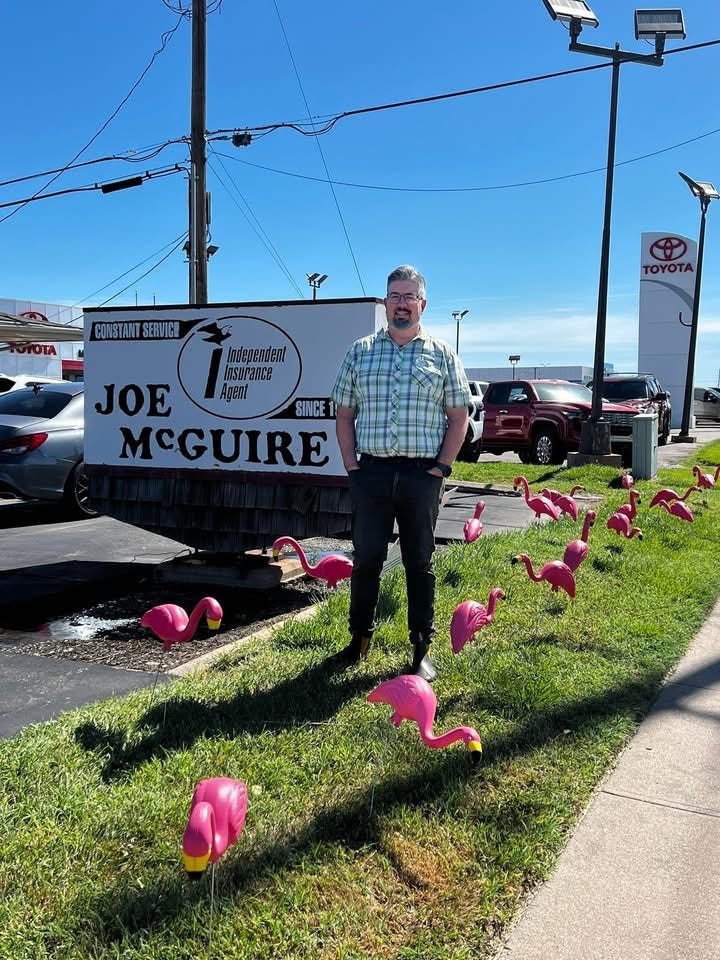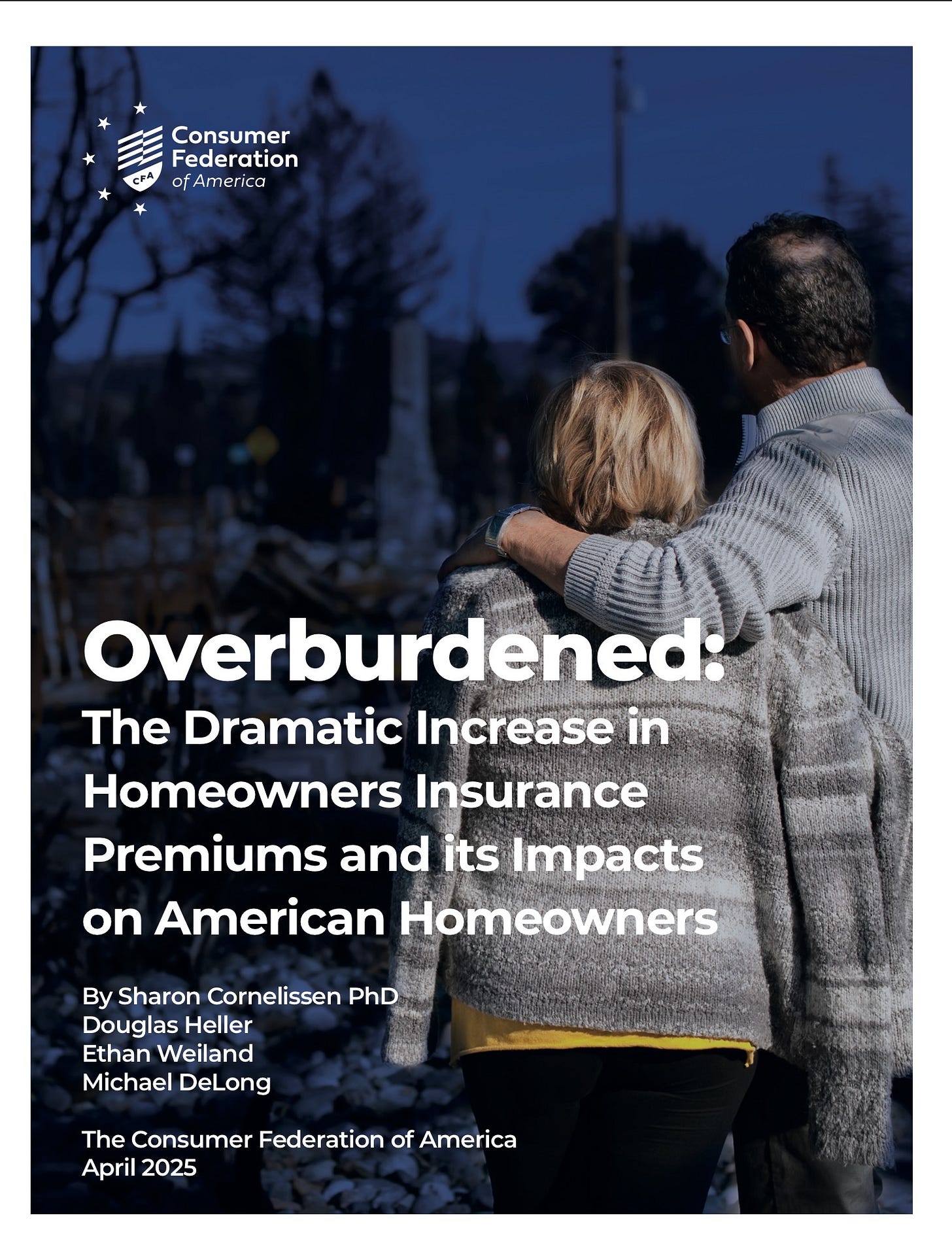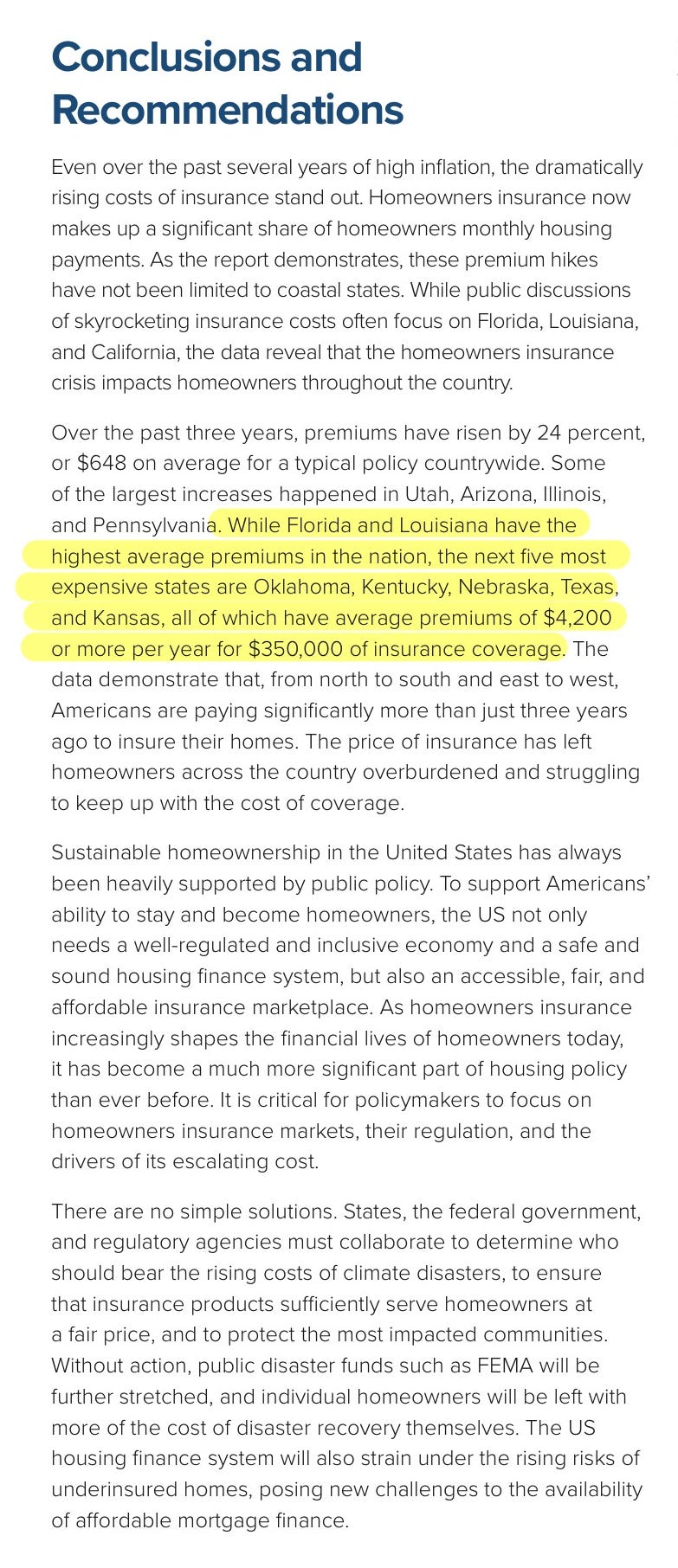TPIH: Dave Inskeep on insurance
We dive into what's driving up the price tag on homeowners policies
This week’s episode of That Podcast in Hutch takes a dive into something most of us have had to deal with at one time or another - Homeowner’s Insurance - with my friend Dave Inskeep, owner of Joe McGuire Insurance.
In recent months, I’ve had a number of conversations with lenders, bankers, community advocates, and others about the critical need for more housing. This need spans the state, and across all income levels.
There are a number of barriers that prevent needed development, and one of those that I think we don’t talk about often enough is the rising cost of insurance, policy changes that make it harder to adequately maintain a home, and the chilling effect all of that has on the housing and development market.
According to a report by the Consumer Federation of America, the average price of homeowner’s insurance increased an average of $628 between 2021 and 2024. In Kansas, the average rate rose 14 percent, but as you’ll learn, that isn’t consistent across the state - some areas saw higher, and lower, rate increases.
Kansas already had one of the highest insurance costs in the country, landing a spot among one of the seven most expensive states for insurance, which include Florida and Louisiana. On average, a homeowner pays more than $4,200 per year for coverage on a $350,000 home.
Dave does a great job of walking me through a lot of the complexities of insurance, and, I think, gives us an honest assessment of what is happening in the insurance industry.
If you own a home, plan to sell a home, hope to own a home, or have anything to do with homes, I think you’ll find this episode informative and enlightening. I know you’ll walk away knowing more about insurance than you did beforehand.
You can listen to That Podcast in Hutch on your favorite streaming service. Below the links, I’ll touch on a few other key points.
I didn’t get into this in the podcast, but I think it’s important to highlight.
Insurance companies often talk about how they’ve suffered underwriting losses - and that might be true - but it doesn’t tell the whole financial story. Most big underwriters and insurers are at their core a financial investment vehicle, and they make a good amount of money from investments. This is a good, and smart, way to hedge against risk, but it’s a little misleading to raise rates because of losses, all while making money through investments.
Kansas doesn’t show up as one of the state’s with the highest increase in rates - but that’s because our rates were already high to begin with. Despite Kansans’ often talking about our reasonable cost of living, in a number of areas - insurance, energy, and healthcare, we’re more expensive than neighboring states. Despite our ranking in the top 7 most expensive states for homeowners insurance, you’ve seen nothing of substance from the Kansas Legislature on this issue. I’ll leave it to you to figure out why.
The insurance dynamic is harming families and the broader economy. When families are forced to pay several hundred dollars each month for a basic insurance policy on their home, that’s money that can’t be used to support small local businesses.
It’s also affecting the housing market, because even if people can afford the price of a home, they might find the cost of insurance drives the price out of reach. When we look at the entire ecosystem of our current housing crunch, we won’t find sustainable solutions until we further examine what’s happening in the insurance space.
Ironically, the rising cost of insurance is actually contributing to a decline in home maintenance that would protect the value of the property and increases in mortgage defaults. A $500 premium increase was linked to a 20 percent rise in the likelihood of mortgage delinquency within the year of the increase.
It’s a vicious cycle. The pressure of rising homeowners insurance in economically depressed areas has accelerated “housing disinvestment, a declining tax base, and the withdrawal of lenders and insurers,” the report states. “The families left behind will be those with the fewest financial resources to move or older households too invested in their homes. As local home values dwindle, impacted towns and cities will have even fewer resources to maintain disaster-impacted infrastructure.”
Lastly, and I’ve said this before: You might not believe in Climate Change, but your insurance company most certainly does. As you’ll hear in the podcast, Kansas’ rates have climbed in recent years in large part because we are now considered a “wildfire” state - and that is factored into our premiums.






